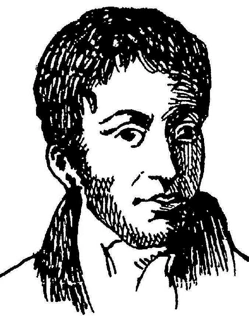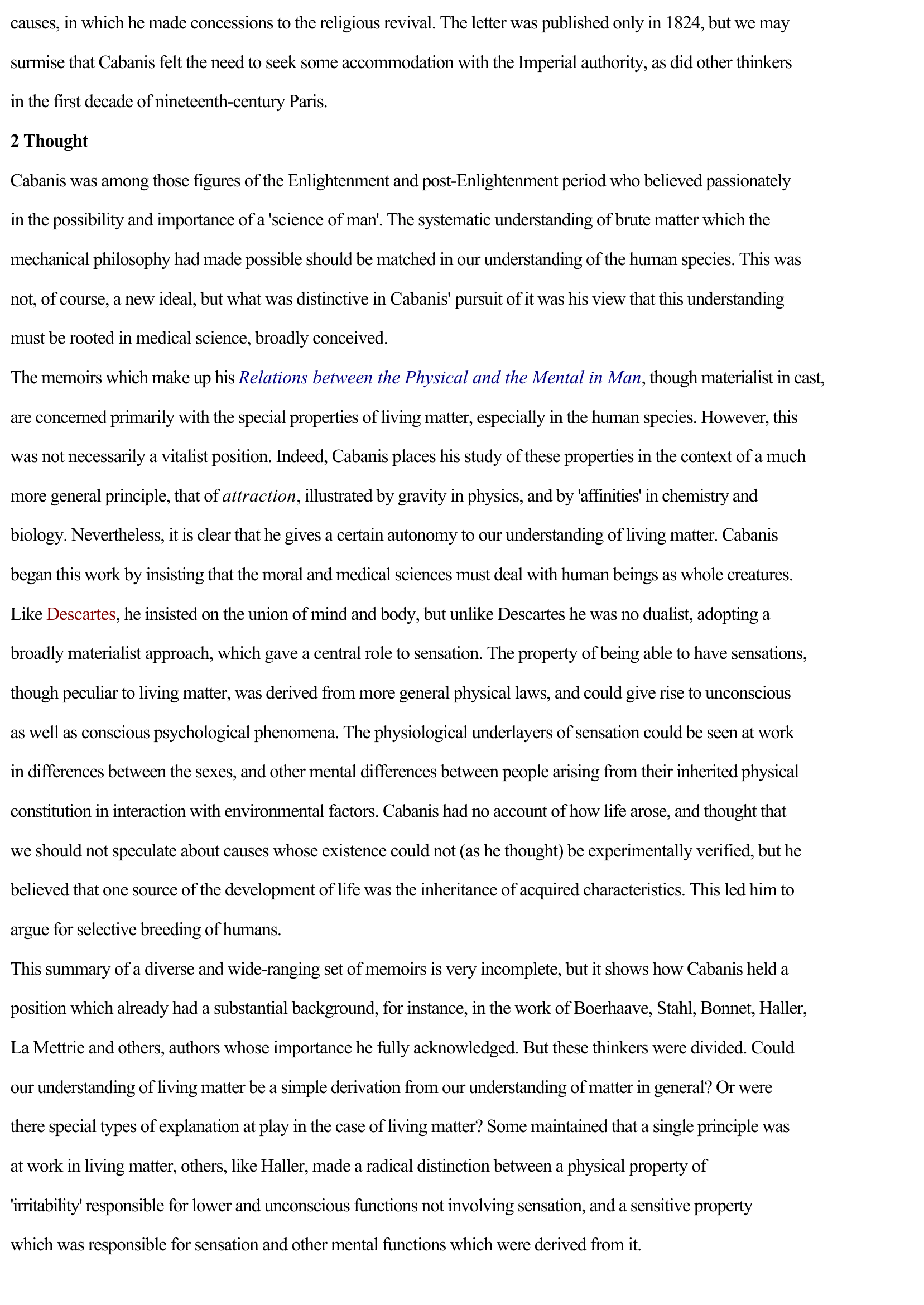Cabanis, Pierre-Jean
Publié le 22/02/2012
Extrait du document


«
causes, in which he made concessions to the religious revival.
The letter was published only in 1824, but we may
surmise that Cabanis felt the need to seek some accommodation with the Imperial authority, as did other thinkers
in the first decade of nineteenth-century Paris.
2 Thought
Cabanis was among those figures of the Enlightenment and post-Enlightenment period who believed passionately
in the possibility and importance of a 'science of man' .
The systematic understanding of brute matter which the
mechanical philosophy had made possible should be matched in our understanding of the human species.
This was
not, of course, a new ideal, but what was distinctive in Cabanis' pursuit of it was his view that this understanding
must be rooted in medical science, broadly conceived.
The memoirs which make up his Relations between the Physical and the Mental in Man , though materialist in cast,
are concerned primarily with the special properties of living matter, especially in the human species.
However, this
was not necessarily a vitalist position.
Indeed, Cabanis places his study of these properties in the context of a much
more general principle, that of attraction , illustrated by gravity in physics, and by 'affinities' in chemistry and
biology.
Nevertheless, it is clear that he gives a certain autonomy to our understanding of living matter.
Cabanis
began this work by insisting that the moral and medical sciences must deal with human beings as whole creatures.
Like Descartes , he insisted on the union of mind and body, but unlike Descartes he was no dualist, adopting a
broadly materialist approach, which gave a central role to sensation.
The property of being able to have sensations,
though peculiar to living matter, was derived from more general physical laws, and could give rise to unconscious
as well as conscious psychological phenomena.
The physiological underlayers of sensation could be seen at work
in differences between the sexes, and other mental differences between people arising from their inherited physical
constitution in interaction with environmental factors.
Cabanis had no account of how life arose, and thought that
we should not speculate about causes whose existence could not (as he thought) be experimentally verified, but he
believed that one source of the development of life was the inheritance of acquired characteristics.
This led him to
argue for selective breeding of humans.
This summary of a diverse and wide-ranging set of memoirs is very incomplete, but it shows how Cabanis held a
position which already had a substantial background, for instance, in the work of Boerhaave, Stahl, Bonnet, Haller,
La Mettrie and others, authors whose importance he fully acknowledged.
But these thinkers were divided.
Could
our understanding of living matter be a simple derivation from our understanding of matter in general? Or were
there special types of explanation at play in the case of living matter? Some maintained that a single principle was
at work in living matter, others, like Haller, made a radical distinction between a physical property of
'irritability' responsible for lower and unconscious functions not involving sensation, and a sensitive property
which was responsible for sensation and other mental functions which were derived from it..
»
↓↓↓ APERÇU DU DOCUMENT ↓↓↓
Liens utiles
- Il faut pourtant l'avouer : cette analyse, qui a fait faire un si grand pas à l'idéologie, est pourtant encore incomplète. Pierre-Jean-Georges Cabanis, Rapports du physique et du moral de l'homme
- CABANIS, Pierre Jean Georges (1757-1808) Homme politique, médecin et philosophe, il aide Bonaparte à prendre le pouvoir et le désavoue par la suite.
- CABANIS, Pierre Jean Georges (1757-1808) Homme politique, médecin et philosophe, il aide Bonaparte à prendre le pouvoir et le désavoue par la suite.
- Cabanis, Pierre Jean GeorgesF218A Cagniard de Latour, CharlesF218B Cartellier, PierreF218C
- CABANIS (Pierre Jean Georges)

































